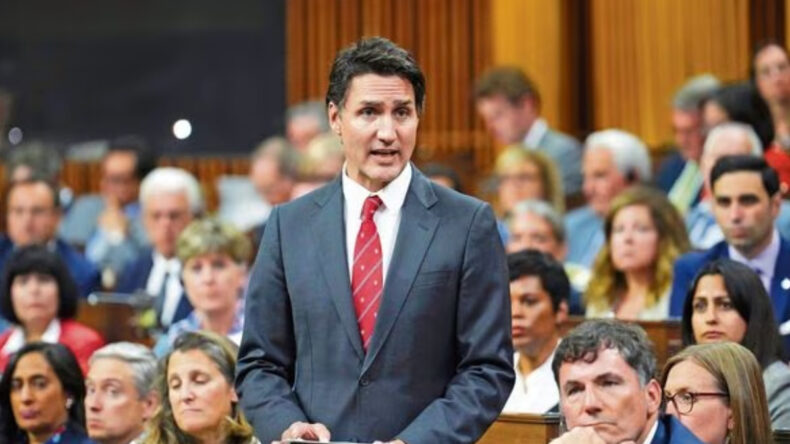Global ramifications have resulted from Canadian Prime Minister Justin Trudeau’s allegations that India was involved in the murder of pro-Khalistan politician Hardeep Singh Nijjar. The US, UK, and Australia all commented on these charges, and they have since spread throughout the entire world. Mint examines the situation.
Trudeau’s allegation
Prime Minister Justin Trudeau said on Monday that the country’s security agencies were looking into “credible allegations of a potential link between agents of the Government of India and the killing of a Canadian citizen, Hardeep Singh Nijjar.” He went on to explain that Canada had voiced its concerns to the Indian government. Any foreign government’s involvement in a Canadian citizen’s murder on Canadian territory is a serious breach of our sovereignty, the speaker said. In addition, he requested that India assist Canada in determining the truth.

Impact of Trudeau’s allegations on foreign nations
Trudeau told French President Emmanuel Macron, UK Prime Minister Rishi Sunak, and US President Joe Biden about the allegations before he made them in front of the Canadian House of Commons. Prior to the G20 Summit in New Delhi, Canada reportedly contacted nations who are a part of the Five Eyes intelligence partnership, which also includes Australia and New Zealand. But according to the same article, these nations were reluctant to issue a joint statement denouncing India for its alleged part in Nijjar’s murder.
Washington’s stance on the situation
A United States expert referred to Canadian Prime Minister Justin Trudeau’s assertion of a “potential link” between Indian government agents and the murder of a Khalistani leader as “shameless and cynical action” and asked the US not to take part in it.
Michael Rubin, Senior Fellow at the American Enterprise Institute, asserted that Trudeau is playing into the hands of those who view the Khalistani movement as an ego- and money-driven movement at a panel discussion at the Hudson Institute think tank.
After Trudeau claimed that “agents of the Indian government” were responsible for the murder of major Sikh separatist leader Hardeep Singh Nijjar, 45, in Surrey in June, New Delhi categorically dismissed Trudeau’s allegations as “absurd” and “motivated” and expelled a senior diplomat from each country.
Nijjar, the leader of the outlawed Khalistan Tiger Force (KTF) and one of India’s most wanted terrorists with a Rs. 10 lakh cash reward on his head, was shot dead by two assailants on June 18 outside a gurdwara in Surrey, British Columbia, in western Canada.
The death of Karima Baluch, which was allegedly carried out with Pakistani assistance, is a police case and has not been brought to the Prime Minister’s office, Rubin added, which is noteworthy about Trudeau’s “shameless action and cynical action” at this time.
“So, if populist political posturing isn’t the cause of the disparity, what is? Long-term, that might benefit Justin Trudeau, but that’s not what leadership is. Because they are playing with fire, our politicians on both sides of the aisle both here and in Canada need to be much more responsible,” he added.
According to Rubin, it appears that some outside forces are attempting to resurrect the Khalistan movement.
He stated, “I don’t think it will work,” and went on to say that he did not want the US to support such “cynical maneuvers by outside powers.”
It would be a mistake to claim that a separatist movement is legitimate just because you happen to see it. And while I’m less concerned about the US than Canada at the moment with Justin Trudeau, I am more concerned about how that same knee-jerk reaction is helping those who perceive the Khalistani movement as a movement for ego, profit, and politics.













